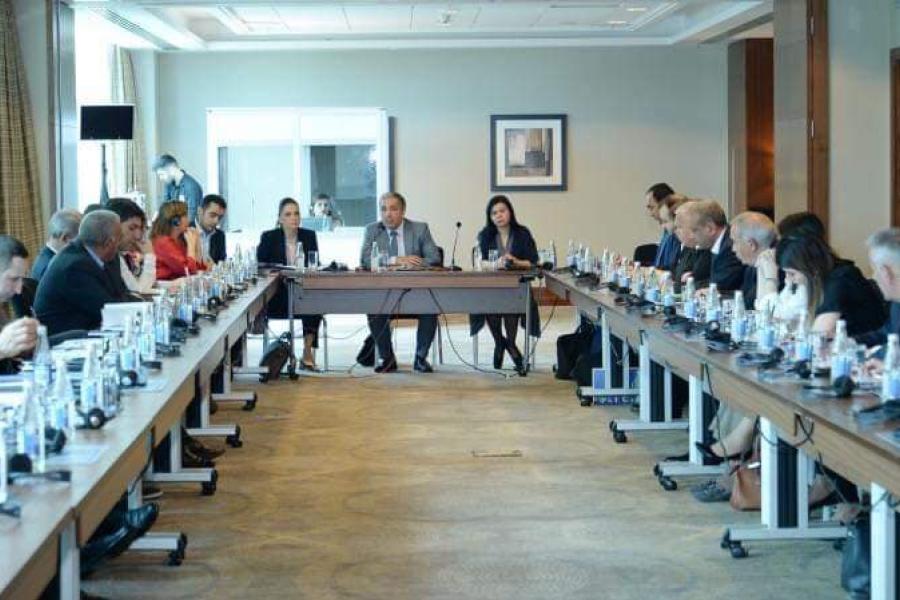FAO launches a four-year project on pest management in Azerbaijan
03 May 2019
- The UN Food and Agriculture Organization (FAO) held the first seminar of pest management project in Baku, as a part of a regional project on lifecycle management of pesticides and disposal of persistent organic pollutants.

A four-year project aims to release of organic pollutants from contaminated sites and stockpiles of obsolete pesticides to be decreased and for countries to be able to better manage pests and pesticides.
“When we refer to pest and pesticide management, we are not only speaking of crop production or productivity but also how pests and pesticides impact small farmers, markets, trade and natural resources. This means the impact on the whole food system, affecting the availability of and access to healthy food,” said Tania Santivanez, FAO agricultural officer. She also noted that 900 metric tonnes of pollutants and obsolete pesticides should be destroyed safely, and pesticide-contaminated sites should be remediated.
At the same time, climate change and the intensification of agricultural production have increased the pressure on crops from pests and diseases. According to estimates, the annual losses caused by insects, weeds and diseases are around 20–40 percent. Although pesticides play an important role in reducing crop losses, they can negatively affect human health and the environment if misused.
“Through this project, FAO aims to increase the successful uptake of alternative solutions, promoting integrated pest management and agroecological approaches on key crops in the spirit of sustainable agriculture,” Santivanez said.
A road map of the project is planned to be designed with the participation of partners from governments, the private and civil sectors, and experts from universities. Supported by the Global Environment Facility, the project had held its alike workshop in Bishkek, Kyrgyzstan.
It is estimated that about half of the world’s obsolete pesticides can be found in the former Soviet Union, with many of them stored throughout Central Asia. As an important centre for agriculture, particularly on cotton production, the subregion was a heavy user of pesticides. That leaves behind inappropriate burial sites, regulatory and management deficits, and other issues.


